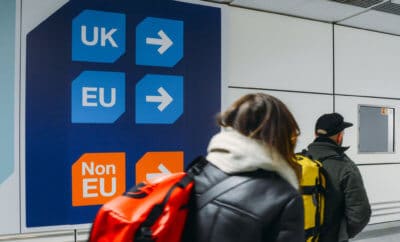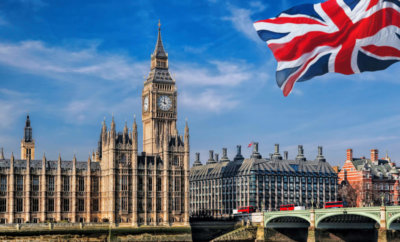Health
Migrants to Pay Double Surcharge for Health Services in UK

Representational Image
Image: Bigstock
The increased surcharges will provide about £220 million more every year, which will be redirected into running the National Health Service.
The health surcharge paid by professionals, students and long-term visitors from countries outside the European Union, including India, during the application process for UK visa is set to double from £200 pounds to £400 per year, the government announced on Feb 5. The surcharge, which was introduced in April 2015, is applicable to all individuals from non-EU countries looking to live, study or work in the United Kingdom for six months or more. The surcharge is payable annually until the person is granted indefinite stay in the country.
The discounted rate for students, which was £150, will rise to £300. The UK Department of Health and Social Care is looking to make the hike effective from later this year. The increase has been attributed to the increasing severity of the crisis affecting the state-funded National Health Service since Brexit.
“It is only right that people who come to the UK should contribute to the running of the NHS. The surcharge offers access to health care services that are far more comprehensive and at a much lower cost than many other countries,” UK Immigration Minister Caroline Nokes said in a statement issued by the Department of health and Social Care. “The income generated goes directly to the NHS services, helping to protect and sustain our world-class healthcare system for everyone who uses it,” she added.
As per the department’s estimates, the NHS spends £470 on average per person every year for the treatment of surcharge payers. The projections by the department say that the increased surcharges will provide about an extra £220 million every year, which will be redirected into running the NHS.
“Our NHS is always there when you need it, paid for by British taxpayers. We welcome long-term migrants using the NHS, but it is only right that they make a fair contribution to its long-term sustainability,” UK Health Minister James O’Shaughnessy said in a statement. “By increasing the surcharge so that it better reflects the actual costs of using health services, this government is providing an extra 220 million pounds a year to support the NHS,” he added.
The surcharge has been seen as a way to clamp down on “health tourism” in the United Kingdom, which took up 0.3 per cent of the NHS budget, according to Full Fact, a fact-checking website.
The payment is made at the time the immigration application is made. The amount is payable until such time as the person is granted indefinite leave to remain in the United Kingdom, or returns to their own country at the end of their visa period.
The surcharge is not related to urgent and emergency care, which is available regardless of immigration status. Those exempted from the surcharge are asylum seekers, refugees and victims of trafficking or modern slavery.




You must be logged in to post a comment Login